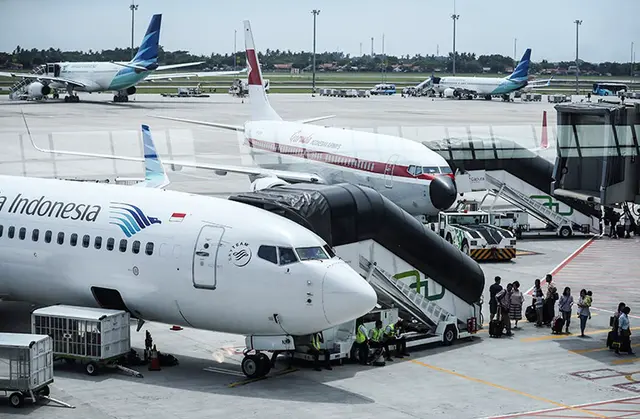By APD writer Alice
Indonesia has overtaken Japan to become the world’s third-biggest aviation market as airlines continue to slash passenger transport capacity due to the coronavirus disease (COVID-19).
According to data from OAG Aviation Worldwide, the country’s scheduled capacity is now 2.1 million seats, down 7.8% from last week, while Japan suffered a drop of nearly 15%.
China has become the biggest aviation market in the world as its capacity rose 7.2% to 8.7 million seats. Meanwhile, that of the US has fallen nearly 27% to 8.2 million this week.
OGA said a resilient domestic market has helped shield Indonesia to a degree, though capacity is still down 33% from the Jan. 20 week. The Southeast Asian country is stepping up efforts to contain the spread of the virus amid warnings that infections could climb to 95,000 by the end of May from about 4,500 now.
Last week, Indonesian President Joko Widodo banned government employees from traveling during Ramadan and urged the public to avoid taking trips at the peak travel time in the world’s fourth-most populous nation.
According to John Grant, an OAG analyst, domestic capacity accounts for 85% of all seats globally and China helped drive a 1% weekly recovery in Northeast Asia with 600,000 additional domestic seats.
Increasing demand and the seasonal May holidays are expected to see further recovery in the Chinese market, Grant said, adding the “Big Three” of Air China Ltd., China Southern Airlines Co., and China Eastern Airlines Corp. all reported increases in week-on-week capacity.
He said many regional markets are operating at less than 15% of historic capacity. This week, 590 airlines planned to operate scheduled services compared with 790 in the Jan. 20 period, a drop of 25%.
Some carriers that usually would operate over 1 million seats a week at this time of year aren’t flying at all, such as Ryanair Holdings Plc, EasyJet Plc, AirAsia BHD, and Turkish Airlines, he added.
(ASIA PACIFIC DAILY)
 简体中文
简体中文

